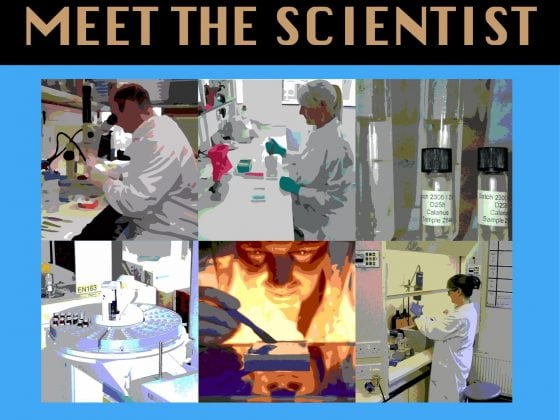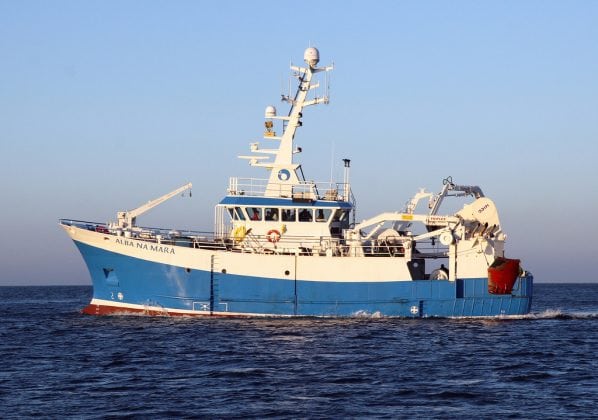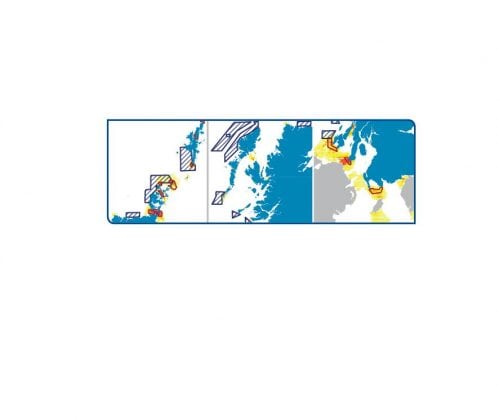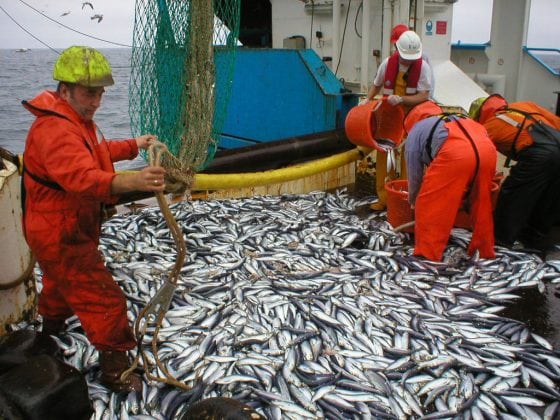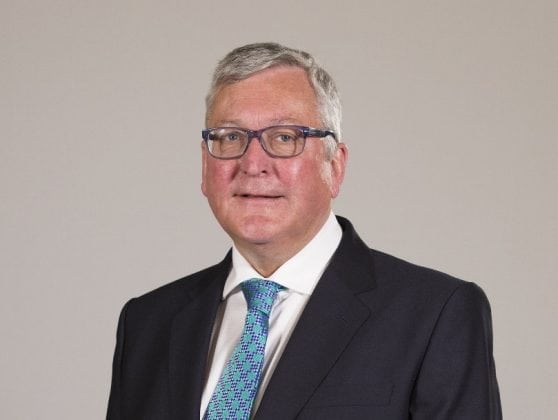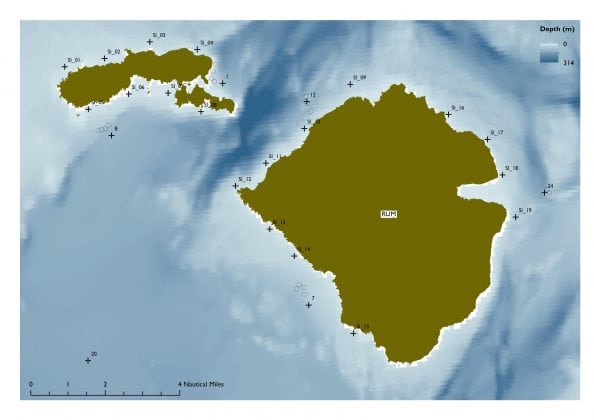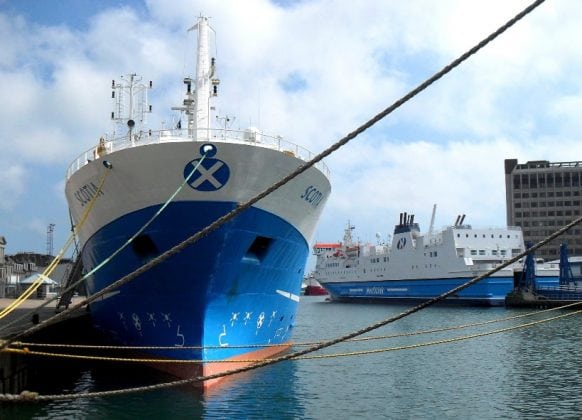Marine
-
Testing the water with an International Bottom Trawl Survey
13th November 2017 by Marine Directorate Communications
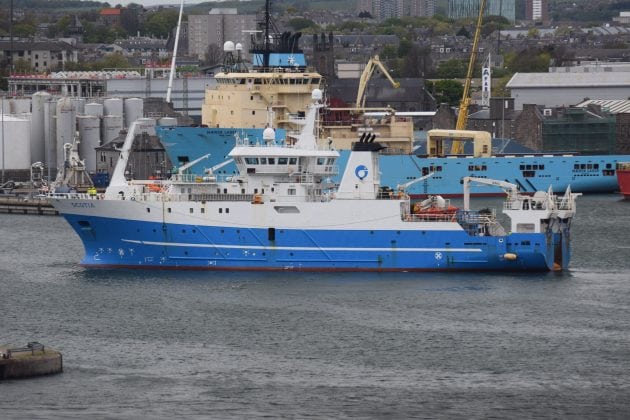
Duration: 13 November – 3 December 2017 Fishing Gear: GOV Trawl (BT137) and ground gear D (hoppers) Objectives: To participate in the ICES co-ordinated western division demersal trawling survey. To obtain temperature and salinity data profiles at each trawling position. To collect additional biological data in connection with the EU data collection framework (DCF). Procedures:...
-
Meet our scientists – Dr Faye Jackson
7th November 2017 by Marine Scotland Communications

Who are you and what do you do? I am a new employee in the Environment Group at Marine Scotland Science Freshwater Fisheries Laboratory (MSS-FFL). I am currently undertaking large-scale (all of Scotland) spatial data analysis, using R as a GIS, to create national scale datasets of river habitat proxies e.g. elevation, river width, bankside...
-
At Loggerheads with PAM
6th November 2017 by Marine Scotland Communications

Duration: 6-13 November 2017 Gear: Sub-surface passive acoustic monitoring (PAM) moorings. Objectives: To retrieve a previously deployed series of moorings comprising acoustic release systems (eight subsurface acoustic release moorings) and the acoustic recording devices attached to them (eight C-POD and three Loggerhead broadband units). Nine moorings were deployed originally however, one of these (Soay) has...
-
Maximising the benefits of future large scale tidal and wave energy developments
3rd November 2017 by Marine Scotland Communications

Marine renewable energy is an important component of the Scottish Government’s vision for the future and will help the government reach its climate change objectives. In response to this, a three-year project, EcoWatt2050, was created to investigate how we can ensure that the benefits of future large scale tidal and wave energy developments can be...
-
Getting a good grounding with the Northeast Atlantic
1st November 2017 by Marine Scotland Communications
Marine Scotland Science has just released new Groundfish Survey Monitoring and Assessment data for the Northeast Atlantic Area, which includes fish abundance and biomass at length information for all the species caught during the surveys (details in the table below). With growing interest in understanding, assessing and managing the ecosystem in a more holistic way, having reliable...
-
Looking for flatfish with the Sir John Murray
30th October 2017 by Marine Directorate Communications

Duration: 31 October – 8 November 2017 Sampling Gear: Scottish Environment Protection Agency (SEPA) – 2 m beam trawl with 50 mm cod-end SEPA – Demersal trawl with 50 mm cod-end SEPA – Day grab and table Marine Scotland Science (MSS) – Catamaran and neuston net Objectives: To undertake flatfish and sediment sampling in the...
-
Glasgow welcomes the EU Atlantic Stakeholder Conference
26th October 2017 by Marine Scotland Communications

Registration is now open for the conference and workshops for the annual Atlantic Stakeholder Conference, which will take place in Glasgow on 8 November 2017 with a theme of ‘Regeneration across Generations’ and a focus on creating socially inclusive and sustainable models of regional development. This priority of the EU’s Atlantic Strategy and Action Plan will...
-
Meet our scientists – Dr Ian Davies
24th October 2017 by Marine Scotland Communications

Who are you and what do you do? I am Ian Davies, and I am Programme Manager for the Renewables and Energy Programme. There are two Groups in the Programme; one whose main job is to act as advisers to the Department for Business, Energy and Industrial Strategy (BEIS) on chemical discharge from the offshore...
-
Where do fish live?
23rd October 2017 by Marine Directorate Communications

Last week, our scientists were involved in a programme aimed at providing fine-scale data on the habitat associations of cod, haddock and whiting at a key period in their life history – following the transition from pelagic to demersal habitat. The programme also provided them with an opportunity to add to the fish trap and fixed-position baited underwater...
-
Jointly Surveying Marine Protected Areas
20th October 2017 by Marine Directorate Communications

Duration: 20 October – 9 November 2017 Fishing Gear TV drop frame and wiring harness TV sledge and wiring harness Valeport mini-CTD 0.25m2 USNEL BSL Box core 0.1m mini Hamon grab 0.1m Day Grab (backup) 0.1m Van Veen Grab (backup) Background Marine Scotland Science (MSS) and the Joint Nature Conservation Committee (JNCC) will undertake an...

